This is a post written by a young organ enthusiast, Anna Hallett. Anna is 13 years old and avidly blogs about her organ playing on her website Pipes Keys and Chords. We asked her to write this piece that encapsulates some of the challenges youngsters have in gaining playing time on an organ.
Many young organists take up the ‘Beast in the Loft’ or the ‘King of Instruments’ because they are inspired through attending church, belonging to a church choir or because they play the piano and take up the organ from there.
Believe me, it’s not an instrument that you can take up without being prepared to face obstacles and defeat challenges. Some of these may include:
- other extra curricular activities,
- church attendance,
- alternative music instrument lessons,
- investment in music (time and cost)
- and even…health and safety!
How did previous generations do it?
If I ask my parents, or their parents, if there were as many extra curricular activities when they were children as there are now – they just laugh! They tell me that in ‘their day’ there was scouting; youth club; swimming; football; ballet and music lessons.
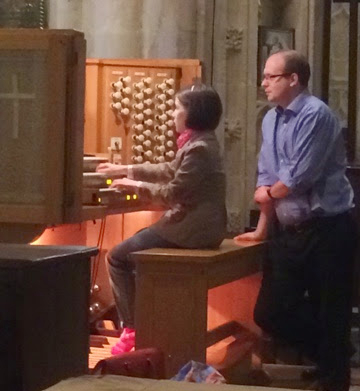
They admit that computers and gaming were in their infancy when they were young and that if they wanted to entertain themselves they’d watch one of three TV channels or go off on a bike ride for the day.
Today there are so many more activities in addition to these with sports of every kind available; the Duke of Edinburgh award scheme; cooking; drama; and dance classes. And then… there are TV channels by the hundreds and gaming until you can game no more! People fill their weekends with these, along with school work; sports matches; and trips or shopping – with the result that music and church are low on the list of ‘entertainment’ options.
The church’s impact on inspiring new organists
With dwindling church attendance, I think fewer young people than ever are being inspired to even start the organ. Most students seem to start with some keyboard skills, usually piano, before embarking on the organ.
For me, I was on grade four on the piano and started playing the organ having seen an advert for ‘Pipes and Pizza’ organised by the Pipe Up scheme in the Salisbury Diocese. (However, I will say that the only place I saw the advert was in church – where I sing in the choir each week, so it was purely by chance I came across it.)
(Video below of Anna playing Bach at Tewkesbury Abbey in 2018)
Schemes to support young organists
There are other schemes available to encourage young organists (once they know about and start playing the ‘King of Instruments’), such as YOST, RSCM, Leeds Diocese Organist Training Programme and some very proactive local Organ Associations.
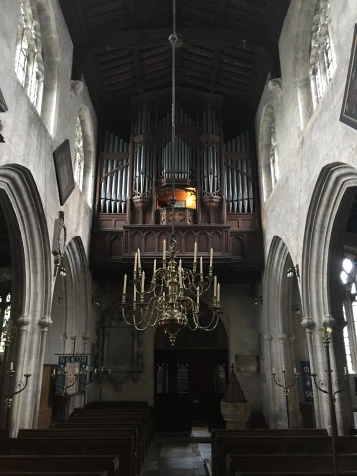
These organisations then help the students gain access to practice instruments, sometimes even giving them a key to the church. However, today, with health and safety rules and regulations, along with DBS checks required for teachers – many other young organists often struggle to access an organ for practice. Churches can’t afford to risk young children going into the building unsupervised, playing in a valuable instrument, let alone going into the organ loft by themselves. This therefore restricts the time and practice a keen young organist has available to them.
Students who learn through the YOST scheme, for example, play in church services on a regular basis – as it is part of their ‘contract’ with the Trust. They play in churches, which would otherwise struggle to have an organist. (So a win-win if you ask me). Below is a video from YouTube with Dr Martin Clarke from Young Organ Scholars’ Trust highlighting the achievements of the Trust as pupils perform at a special event.
Churches moving away from organs
Some churches (sadly) have moved away from organ music quite happily with alternative music provided by music groups (e.g. a piano or even pre-recorded music). This is often the case with ‘Hatch, Match and Despatch’ services, where people choose popular music over and above the traditional organ pieces for such services.
So then – the few times some people attend a church service – they don’t get to hear the magnificent sound of the organ! Of course the more churches move over to alternative music, the fewer the chances that organists, young or old, get to play or perform in public – the ultimate point of playing almost any instrument.
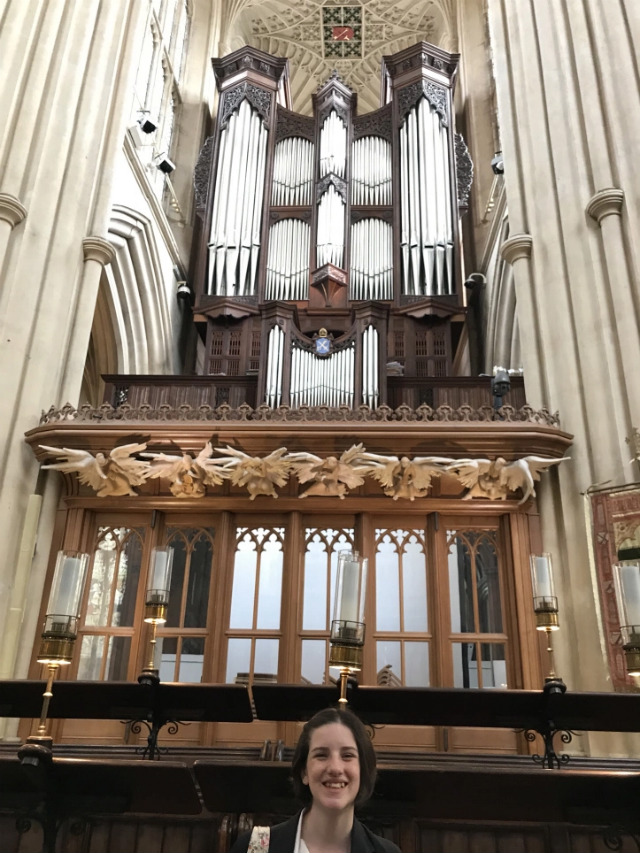
Music programmes in schools
Unfortunately, we also have the lingering issue of the fact that the Government is reducing the emphasis on the importance of music and the funding to support it in schools. As such, many children are not being introduced to any instruments, rarely a variety of instruments and never the more unusual ones.
I think it is fantastic that David Mason at Viscount is proactively working on initiatives to provide five schools with organs, so that many more children have the opportunity to hear this amazing instrument. Without positive intervention like this, many young people will only come across the organ through attending an independent or cathedral school – where of course there will be a lively music department and they may be encouraged to at least try playing.
Dwindling number of organists
The fact that the number of organists is dropping year-on-year – this puts the future of the profession under a lot of pressure. I believe the expectation, rightly or wrongly, is that past and future Directors of Music have and will come from one of the top universities such as Oxford, Cambridge or Durham. It is not enough that they are passionate and exceptional organists – they must also be extremely academic both through school and then at university. This requires nothing short of 100% dedication to the cause. With fewer people prepared or able to meet these strict criteria the demand for committed young organists will only increase, along with the pressure upon them.
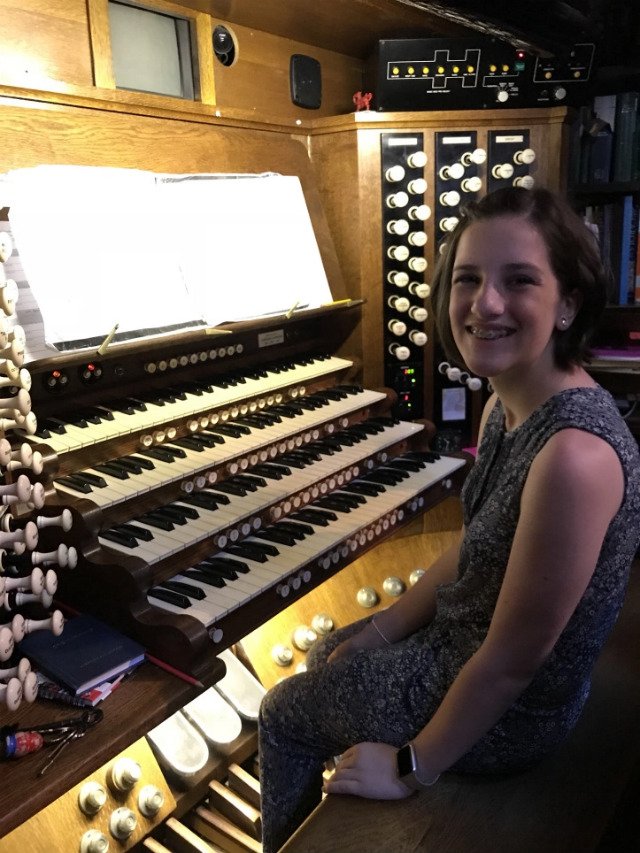
I’m not sure there are many more problems facing young organists today than there were fifty years ago (apart from Child Protection). The pedal board remains unreachable for the very young or short, the idea that you can play the piano and therefore will excel at the organ remains as daunting as it has always been, but I firmly feel organists should continue to encourage as many young people as possible to learn the organ, or even just play it once, because it really is the ‘King of Instruments’.
You can follow Anna on Twitter and YouTube or read more on her blog at Pipes Keys and Chords. If you would like to know more about Viscount Classical Organ’s (UK & Ireland) commitment to support young organists, please get in touch with David Mason.
I’m Anna and Pipes, keys and chords brings together my three instruments; organ, piano and voice and is a record of all I do in and with music.
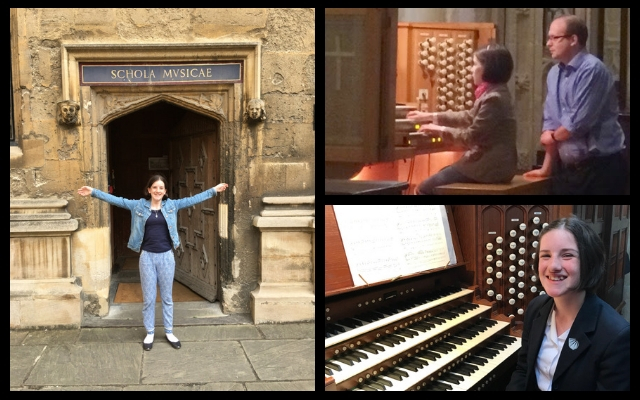



Anna What a wonderful piece of writing and such an inspiration to young aspiring organists who read it. Very well done indeed